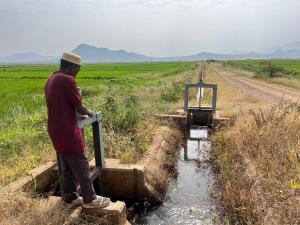Test project Pesticides and Protection Tanzania
testing out building a project
Joshua Moses
JoshuaI teach anthropology and environmental studies at Haveford College, just outside of Philly. Currently, I'm holed up in a cabin in the Adirondacks in upstate New York with several family members, including my spouse and 4 year old daughter and 3 dogs. I started working on disasters by accident, when one day in 2001 I was walking to class at NYU and saw the World Trade Center buildings on flames. I have known Kim for a few year and I contacted her to connect with folks around Covid-19 and its imacts.
I'm particularly intersted in issues of communal grief, mourning, and bereavement. Also, I'm interested in the religious response to Covid-19.
pece_annotation_1473626961
jaostrander“we have seen that it is possible to decrease the extent to which social inequalities become embodied as health disparities”
“National health insurance and other social safety nets, including those that guarantee primary education, food security, and clean water, are important because they promise rights, rather than commodities, to citizens.”
“: structural violence remains a highranking cause of premature death and disability”
pece_annotation_1481652436
jaostranderThe authors made use of interviews and conclusions from various research workshops to produce the claims in this article.
pece_annotation_1474211944
jaostranderThe authors used reports and statistics from international health organizations such as WHO. They also gathered information from think tanks like RAND. Additionally, to support the claims made in this article the authors looked at how biological outbreaks and threats were dealt with in the past, specifically World War II and the wars with Iran.
pece_annotation_1474215599
jaostranderThis organization operates within low socioeconomical regions. These are regions that are typically war zones or are high in violence. This has shaped their way of conceiving disaster in that they believe everyone should be provided care.
pece_annotation_1476208839
jaostranderThe article discusses the cares and the decisions made in regards to patient care at a hospital during hurricane Katrina. A team of doctors decided to euthanize several patients who were suffering and likely would not receive care or live much longer anyway. While, the team of medical professionals made this choice morally and to relieve the patients of their suffering they are still subject to malpractice claims and breaking protocol. The article suggests a disconnect between those working in the field alongside patients and those making rules and regulations.




the rice irrigation scheme, Pare Valley, Tanzania